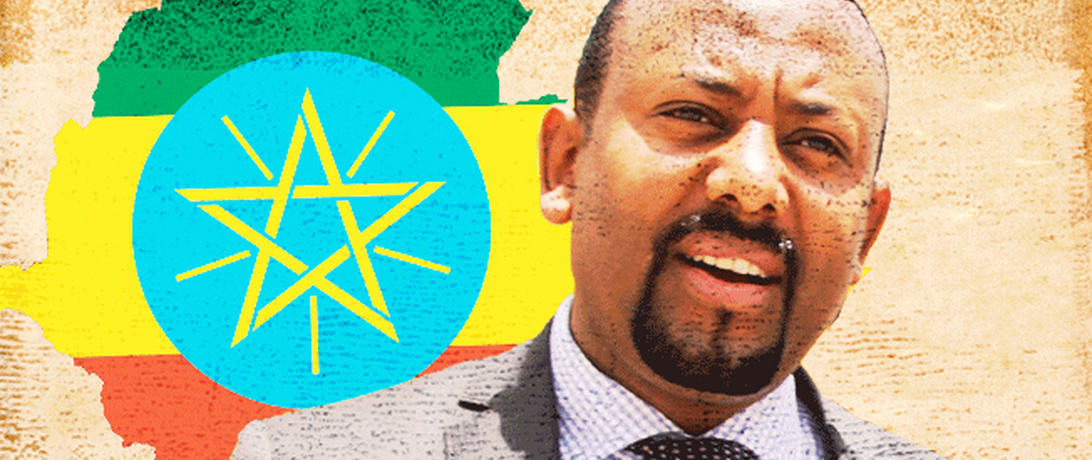
New Research suggests Ethiopian Prime Minister Abiy Ahmed's election, and his rise to power through the dominant Ethiopian People’s Revolutionary Democratic Front (EPRDF) party, could offer a potential for cessation of prolonged insurgencies.
This is the second blog post in a series on the potential political consequences of Ethiopia’s recent leadership change.
The previous post explored both how the rise of Prime Minister Abiy Ahmed created an opportunity to resolve the contentious rivalry between Ethiopia and Eritrea and the possible political ramifications that may result from the end of the conflict. Unfortunately, Ethiopia struggles with more than just international disputes. For decades, Ethiopia has suffered prolonged rural insurgencies from the Oromo Liberation Front (OLF) and the Ogaden National Liberation Front (ONLF). Both rebel groups maintain secessionist aspirations and draw their support from historically excluded ethnic groups within Ethiopia. The shift in political leadership in Ethiopia created an opportunity to settle the conflict with Eritrea, but do the same mechanisms allow Ahmed to reach a settlement with these dissident factions inside Ethiopia? While past studies have argued that new leaders may be less capable of ending prolonged insurgencies, new research suggests that Prime Minister Ahmed’s rise through the existing dominant party structure of Ethiopia may allow him to settle these conflicts.
The origins of both insurgencies can be traced back to the Ethiopian civil war that ended in 1991. The OLF draws its support largely from the ethnic Oromo, which is the largest ethnic group in Ethiopia. Despite their relative strength in numbers, the Oromo have historically been discriminated against within Ethiopian society, fostering significant grievances with the Ethiopian government. Similarly, the ONLF was also formed during the Ethiopian civil war and draws support largely from Somalis. The Ogaden region has long been home to ethnic Somalis living in Ethiopia, and (similar to the Oromo) this group has suffered significant discrimination within Ethiopia. The prolonged conflicts between the Ethiopian government and the rebel factions have been marked by periods of failed negotiations and escalating violence. The last few years have witnessed increased civil discontent from Oromos, with widespread protests, riots, and violent crackdowns from the state. This may be one reason why Ethiopia’s new prime minister called for peace and reconciliation upon taking office (he is also Ethiopia’s first Oromo prime minister).
As a new leader, though, will Prime Minister Ahmed be able to foster peace between these two rebel groups and hopefully tamp down the violence occurring throughout the country? Past studies tend to offer a pessimistic view of Ahmed’s ability to resolve the conflict as a new leader. Work by Clayton Thyne on leadership tenure and civil war duration suggests that leaders are better able to resolve conflicts when they have longer tenures in office. Rebels often face significant commitment problems when negotiating a settlement. Given the incentive of the government to defect from any agreement and punish rebels after insurgents disarm, rebels often are hesitant to enter into a settlement. Thyne’s work suggests that older leaders have more skill at preserving their place in power, reducing insurgents’ concerns that they will deal with a new leader in the future who may reject past agreements Similar findings have been offered by Gary Uzony and Matthew Wells, though they suggest this relationship is largely conditional on the presence of domestic institutions. As a new leader coming to power, Ahmed may not have the same institutional credibility as a more tenured leader to effectively negotiate with insurgents.
New research by Kirssa Ryckman and Jessica Maves Braithwaite offers a little more hope. As opposed to looking broadly at whether a new leader or a more tenured executive is in office, the authors suggest that insider leadership changes may be helpful in ending armed conflicts. Specifically, these insider changes reflect a shift in leadership of the country, but much of the status quo is left unchanged. Ryckman and Braithwaite demonstrate that insider leadership change may significantly increase the likelihood that rebels and the government will enter into a negotiated settlement. This finding is also reflected to some degree in Thyne’s work, as his research suggests that the ruling party’s tenure (as opposed to just the leader’s tenure) may play a similar role in fostering an end to conflict. These findings fit well with Prime Minister Ahmed’s own experience, as his rise to power came through the dominant Ethiopian People’s Revolutionary Democratic Front (EPRDF) party rather than through an opposition group.
In short, new research tends to suggest that the recent leadership change in Ethiopia bodes well for navigating a peaceful resolution to the country’s ongoing insurgencies. This should be especially true if Ahmed can both foster greater democratic reforms and maintain his position in government. Recent work by One Earth Future’s REIGN data project notes that there is reason to be hopeful that such reforms may take place. As noted in the previous blog post, the REIGN Dataset has identified a global trend of countries’ shifting toward more democratic political systems. If Ethiopia follows this global trend, Ahmed may have a greater hand in fostering more stability within the country.
Article Details
Published
Topic
Program
Content Type
Opinion & Insights